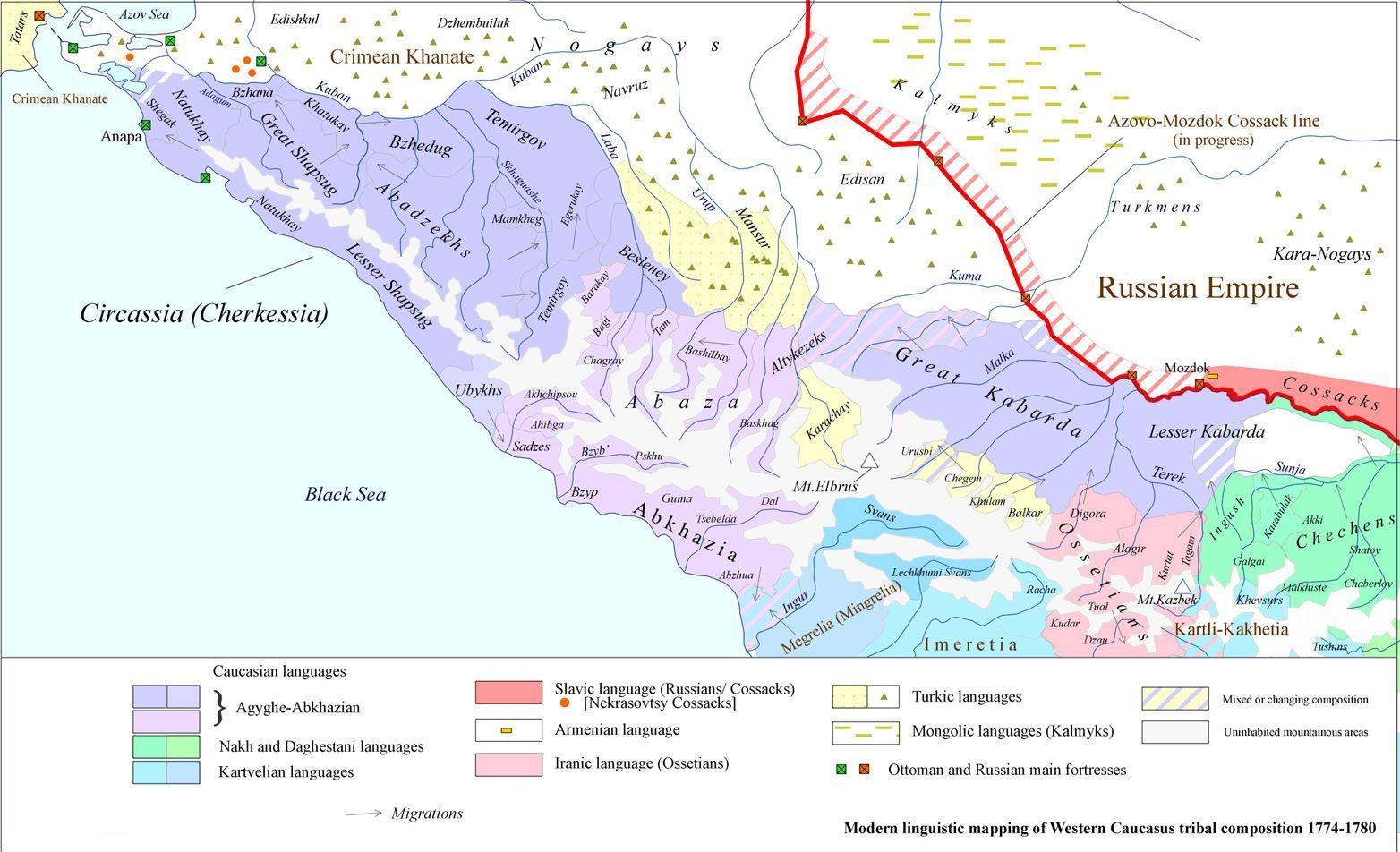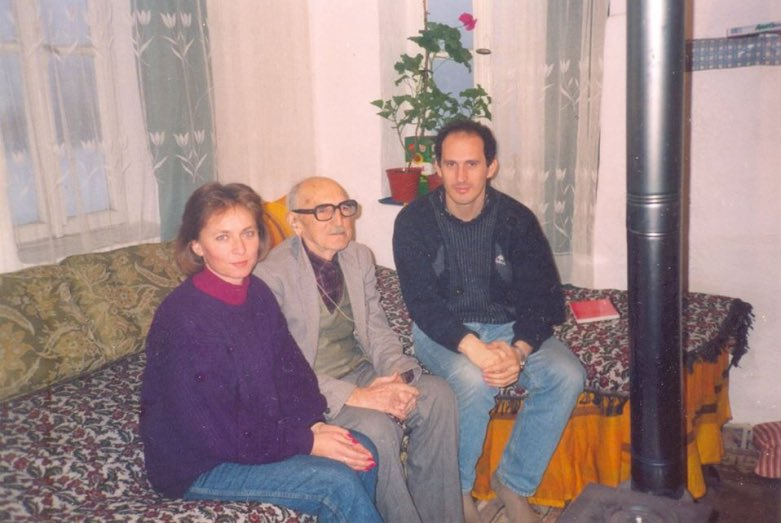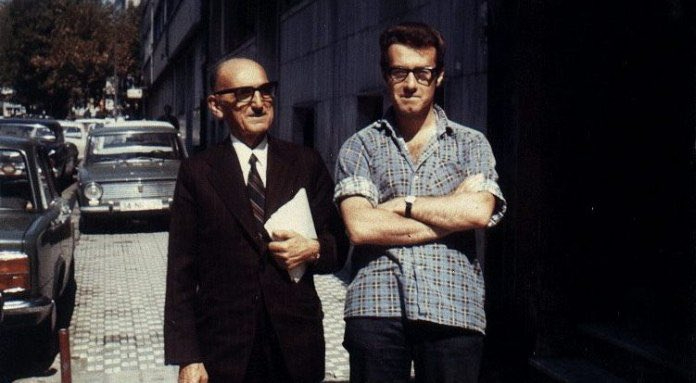31 Years of Silence: Remembering Tevfik Esenç and the Ubykh Language

Tevfik Esenç (1904 - October 7, 1992) was the last native Ubykh speaker.
Tevfik Esenç passed away 31 years ago, on October 7, 1992, in Türkiye. With his death, the Ubykh language also passed away, as he was the last native speaker.
Until 1864, marking the end of the Russian-Caucasus War, the Ubykh people resided along the eastern shore of the Black Sea near Sochi, north-west of Abkhazia. It's challenging to estimate the Ubykh population in the mid-19th century, but some Russian sources suggest a figure of 40,000-50,000.

Modern linguistic mapping of Western Caucasus tribal composition 1774-1780 © Artur Tsutsiev
By the end of February 1864, Russian forces had the Ubykhs surrounded. On March 6, 1864, they ceased resistance. The Ubykh elders initiated armistice talks with the Russians. As per Tsar Alexander II's wishes, the Russians demanded:
“Those wishing to go to Turkey should assemble in encampments on the sea coast at the mouths of the rivers Shakhe, Vardane, and Sochi, where Turkish ships may come. Those who wish to join us should immediately move to the Kuban, where land will be allotted to them.”
In March 1864, with their villages aflame, roughly 30,000 Ubykhs journeyed to the coast to head to the Ottoman Empire (Türkiye). A handful of families were relocated to the Kuban and subsequently settled in the Kostroma province. Other Northwest Caucasian peoples faced similar displacements. The Tsar’s governor-general in the Caucasus, the Grand Duke Michael, announced “the end of the Caucasian war” on May 21, 1864.

Meral Çare, Tevfik Esenç and Viacheslav Chrikba
+ Viacheslav Chirikba: "The Ubykh People Were in Practice Consumed in the Flames of the Fight for Freedom
+ Ubykhs, by T. Tatlok - Caucasian Review, Vol. 7 (1958)
+ The Ubykhs: Historical and Ethnographical Study, by Leonid I. Lavrov
Four decades post the Ubykh expulsion, Tevfik Esenç, the eventual last speaker of the language, was born in Haci Osman, Türkiye. Raised by his Ubykh-speaking grandparents, he served as the muhtar (mayor) before joining Istanbul's civil service. He collaborated extensively with French linguist Georges Dumézil, documenting the Ubykh language.
+ Le verbe oubykh. Études descriptives et comparatives (The Ubykh Verb: Descriptive and Comparative Studies), by Georges Dumézil
+ Trois récits oubykhs, by Georges Dumézil
+ Tales and legends of the Ubykhs [Contes et Legendes des Oubykhs] by Georges Dumézil
Esenç had an impressive memory and quickly grasped the objectives of linguists like George Hewitt, Georges Charachidzé and Viacheslav Chirikba. He observed the decline of Ubykh throughout his life. By the 1980s, only Esenç had full command of the language, with a few tribal elders recalling some phrases.

Tevfik Esenç (left) and George Hewitt, Istanbul 1974
A remarkable feature of Ubykh is its vast consonant inventory, boasting 81 consonant phonemes. It has one of the largest consonant collections globally, rivaled only by the Khoisan languages of southern Africa. Ubykh distinguishes between alveolar, post-alveolar, alveolo-palatal, and retroflex affricates and fricatives, and has an unequal ratio of phonemic consonants to vowels. As John Colarusso noted, "Any rigorous account of human phonetic perceptual capacity will have to consider this precious marvel, Ubykh." Sample Ubykh recordings by George Hewitt from 1974 can be heard here.
In the course of 6 weeks spent in Turkey in 1974, George Hewitt made recordings of Circassian (mostly the Abzakh dialect but also some Shapsugh) in the Anatolian village of Demir Kapı and of Ubykh (mostly with Tevfik Esenç in Istanbul but also with some other elderly speakers in the village of Haci Osman Köyü). The recordings posted here represent a selection of those materials.
Tevfik Esenç passed on October 7, 1992, aged 88. Years before his demise, he penned the inscription he desired on his white marble tombstone:
“This is the grave of Tevfik Esenç. He was the last person able to speak the language known as Ubykh.”